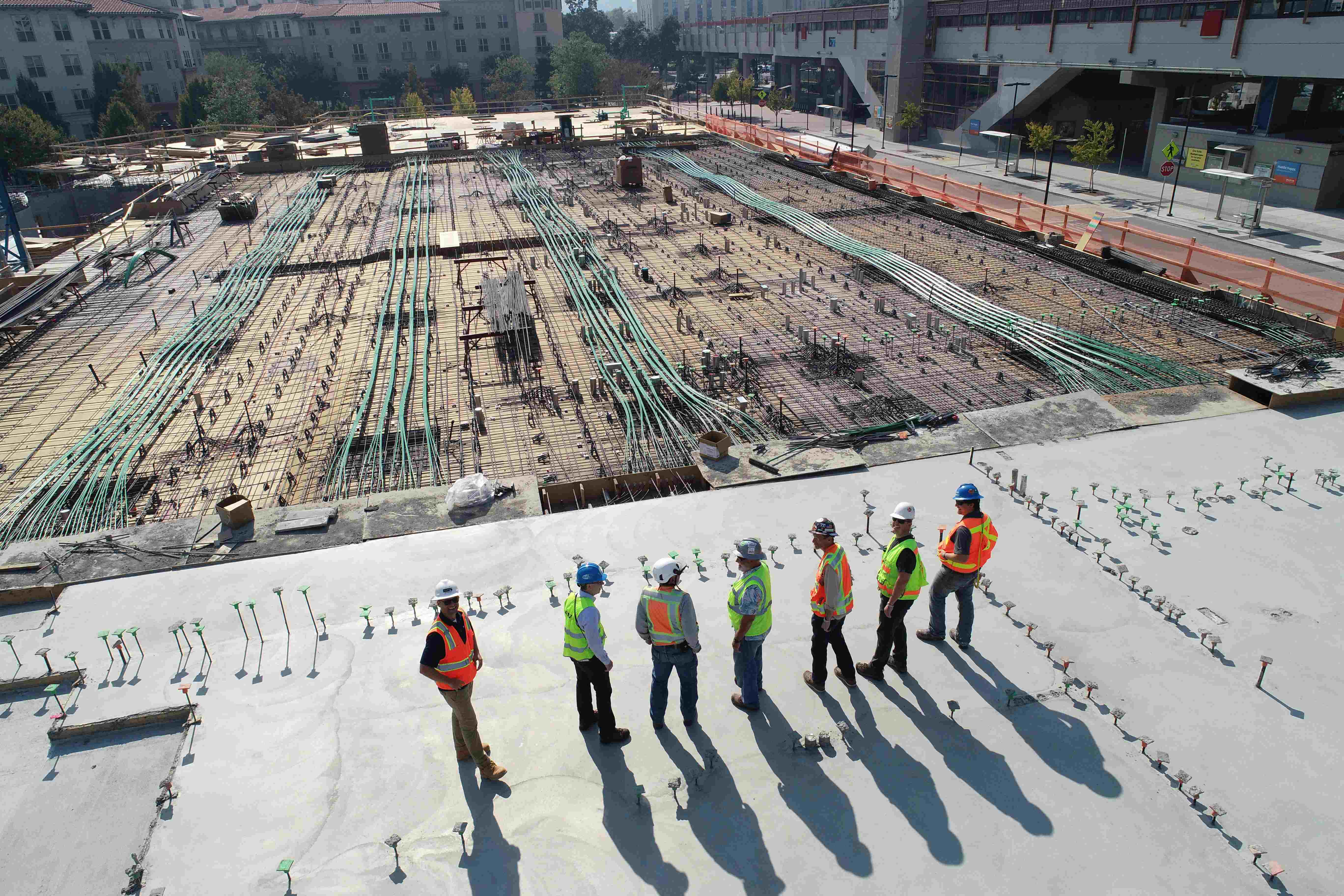
The oil and gas industry is one of the most influential sectors globally, providing thousands of job opportunities and shaping entire economies. However, breaking into this field can feel overwhelming. Oil and gas jobs offer both financial rewards and long-term career growth. If you’re looking to get started, there are a few steps you can take to set yourself apart from the competition and build a successful oil and gas career.
While it is true that the oil and gas sector can be competitive, the right mindset, skills, and strategies can help you find your way. So, how do you kickstart your journey in oil and gas jobs? In this guide, we uncover the best tips for beginning your career in the oil and gas industry.
Here are five essential tips to get you started:
Addressing the Misconception Around Oil and Gas Jobs
First, let’s start with the common misconception that oil and gas jobs are strictly for engineers or those with extensive technical experience. While it is true that engineering plays a crucial role in the industry, oil and gas jobs can vary across a range of disciplines, offering opportunities for various skill sets and backgrounds.
Beyond the stereotype of offshore rigs and drilling, there is a broad range of career opportunities within the oil and gas sector. Understanding the different stages of the oil and gas life cycle can help you discover which area best fits your interests and skills.
Here are the main phases of the industry:
Exploration: This is the first step in the oil and gas process. Geologists, geophysicists, and seismic experts work together to locate oil and gas reserves. Roles in this stage involve fieldwork, data analysis, and advanced technology to find viable drilling sites.
Production: Once oil and gas are located, the production phase begins, involving extraction through drilling. Engineers, rig operators, and technicians are essential in this phase as they manage the day-to-day operations of extracting resources.
Refining and Distribution: After extraction, crude oil needs to be processed into usable forms like gasoline, diesel, or petrochemicals. Refining engineers and chemists work in this phase to ensure the raw materials are processed correctly, while logistics professionals oversee distribution to the market.
Each of these phases requires different skill sets and provides a variety of roles, from hands-on fieldwork to office-based project management. By exploring these stages, you can identify which part of the process appeals to you most. Whether you prefer the thrill of exploration or the technical challenges of refining, there’s something for everyone in the oil and gas life cycle.
Discover Your Interests Within Oil & Gas
If you’re interested in oil and gas but don’t have an engineering degree, the industry offers a wealth of oil and gas jobs. No matter your field, there’s likely a role that matches your skills, preferences and career ambitions.
Take a look below at the critical areas of work within the oil and gas industry:
- Geology: Geologists play a pivotal role in exploring oil and gas reserves, analysing rock formations, and determining the best drilling locations.
- Finance: Financial analysts and accountants are vital in managing the capital-intensive nature of the industry, overseeing budgets, investments, and financial planning.
- Law: Legal professionals work on compliance, contracts, and negotiations for projects, ensuring that companies follow environmental and legal regulations.
- Environmental Science: With growing attention to sustainability, environmental scientists ensure that operations adhere to environmental standards and help oil companies reduce their carbon footprints.
Here are a few key roles for you to consider across all disciplines:
- Exploration Geologist: Uses seismic data and geological studies to locate oil and gas reservoirs.
- Financial Analyst: Manages cost analysis, budgeting, and forecasting for oil and gas projects.
- Energy Lawyer: Specialises in regulatory issues, negotiations, and contract law for oil and gas projects.
- Petroleum Engineer: Designs and develops methods for extracting oil and gas from below the Earth’s surface, optimising efficiency and safety in production.
- Environmental Specialist: Monitors the environmental impact of oil and gas operations, ensuring compliance with local and global regulations.
- Sustainability Advisor: Develop strategies to minimise environmental impact and promote sustainable energy practices within the company.
Our Top Tips for Starting Your Career in Oil and Gas
If you’re considering starting an oil and gas career, it is important to consider the sector’s significant impact on employment.
According to recent research, the UK oil and gas industry has been producing offshore for over 60 years. It directly employs more than 30,000 people. In 2023, OEUK estimated that the sector supported just over 120,000 jobs, both directly and indirectly, with an additional 85,000 jobs connected to the wider economy. This figure highlights the vast range of oil and gas jobs available and the stability of career paths in the long-standing sector.
With this in mind, let’s discuss the best strategies for starting your oil and gas career:
1. Get Educated and Certified
Your first move in the oil and gas sector should be building a solid foundation with education and certifications. Like most jobs, oil and gas employers seek candidates with a solid understanding of the industry. Whether you're a fresh graduate or making a career shift, education is essential.
Below are some of the key qualifications employers will look for:
- Relevant Degrees: Degrees like petroleum engineering, geology, or chemical engineering are highly sought after.
- Get Industry Certifications: Consider programs like Well Control Certification, HAZWOPER, or Offshore Safety Certifications.
- Stay Updated: With growing advancements in automation and renewable energy, continued learning is crucial for staying competitive. Attending industry events, reading publications, and following leaders on social media are the best ways to keep your knowledge sharp.
Having the right qualifications can be the difference between securing your dream job or missing out. Beyond degrees, certifications show employers that you have practical skills to contribute. Plus, keeping up with industry trends will help you stay ahead of your competition.
2. Gain Relevant Experience
While education provides the foundation, experience truly sets you apart. Typically, landing your first oil and gas job without experience can be a challenge. So, how do you build up initial expertise to get your foot in the door?
Here’s how:
- Internships and Entry-level Jobs in the Oil and Gas Industry: Large oil and gas companies often offer internships, which can lead to full-time positions.
- Volunteer or Contract Work: Freelance projects or volunteer work in related fields, like engineering or energy, can help build your experience.
- Networking: Attend industry events and make connections that may lead to entry-level roles.
Starting at the bottom can be frustrating, but internships and junior positions offer critical exposure to daily operations, safety protocols, and the technical skills needed to succeed. Building up this experience can lead to bigger opportunities in the future.
3. Develop Both Technical and Soft Skills
Having the right qualifications and experience is essential, but technical expertise alone won’t be enough. In recent years, employers have begun to prioritise communication and interpersonal ability. Ultimately, soft skills are equally important in oil and gas jobs, where teamwork, safety, and communication are vital.
First, let’s outline some of the most essential technical skills required for oil and gas jobs:
- Drilling operations knowledge
- Fluid dynamics
- Geological formation understanding
- Familiarity with software used in exploration and production
- Reservoir engineering techniques
- Understanding of health, safety, and environmental (HSE) standards
- Equipment maintenance and troubleshooting
- Well-control and pressure management
- Seismic data interpretation
- Project management and budgeting
Key soft skills include:
- Problem-solving: This industry requires quick thinking and the ability to troubleshoot unexpected challenges.
- Communication: Given the collaborative nature of oil and gas operations, effective communication with various team members can be the difference between a successful or unsuccessful project.
- Adaptability: The ability to handle high-pressure situations and adjust to changing market conditions will make you stand out.
Employers will value those who can handle both technical responsibilities and effectively collaborate with others. Beyond technical expertise, showing you’re a problem solver and a confident communicator will undoubtedly help you make a lasting impression.
4. Network Within the Industry
One way you can open doors in the oil and gas sector is by building a strong network. As with many industries, who you know can often be just as important as what you know.
Networking is all about maintaining viable connections. Attending events regularly and staying engaged with industry professionals can create long-term relationships that lead to job offers, mentorships, or career advice.
Let’s break it down:
- Attend Industry Events: Conferences, trade shows, and seminars are great ways to meet professionals and learn about job opportunities.
- Join Professional Associations: Groups like the Society of Petroleum Engineers (SPE) offer networking events and exclusive job boards.
- LinkedIn: Make sure your profile highlights your skills, certifications, and goals in oil and gas. Reach out to professionals and recruiters to build connections.
5. Stay Informed and Flexible
Last on our list, but equally important, is the need to stay informed and flexible. The oil and gas industry is continuously changing due to price fluctuations, regulations, and technological advancements. Staying knowledgeable on these changes is key to long-term success.
Given the cyclical nature of oil prices and changing market demands, flexibility is critical. You may only focus on one industry area at first, but being adaptable will help you explore other opportunities when they arise. Additionally, international and remote roles often offer higher salaries and invaluable experience.
- Stay Updated: Subscribe to industry newsletters, follow oil and gas blogs, and keep an eye on global energy trends.
- Consider Different Roles: The sector offers a variety of oil and gas career paths. It is important to explore different roles to find the best fit for you in your oil and gas job search.
- Be Open to Relocation: Oil and gas jobs often require travel or working in remote locations. Being flexible about where you work can open more opportunities.
Key Takeaways: Starting Your Journey in Oil and Gas Jobs
Beginning an oil and gas career can be both rewarding and challenging. By understanding the range of roles available, from geology to finance, you can identify a pathway that aligns with your skills and interests. This industry is not solely for engineers. There are exciting opportunities for professionals from various backgrounds to contribute and thrive.
To set yourself apart, focus on forming a strong foundation of education and relevant experience. Pursuing industry certifications and internships can significantly enhance your employability. Building on both technical and soft skills will also prepare you for the collaborative environment that characterises the oil and gas sector.
Networking is also essential in navigating your career journey. Engaging with industry professionals through events and online platforms can open doors to valuable opportunities and mentorship. Stay educated about industry trends and be flexible in your career approach, and you'll be well on your way to a successful oil and gas career.
Searching for an Expert Oil and Gas Recruitment Agency?
Want to embark on an oil and gas career? We are dedicated to forging lasting partnerships in the oil and gas sector, a commitment that has fueled our customer-driven culture since 2001. With deep market knowledge and extensive contacts, we excel in understanding industry needs, making us a leading oil and gas recruitment agency. Our highly targeted and flexible oil and gas job search process ensures we deliver specialist solutions tailored to your skills, preferences and career ambitions.
Contact one of our consultants to start your oil and gas career today.




